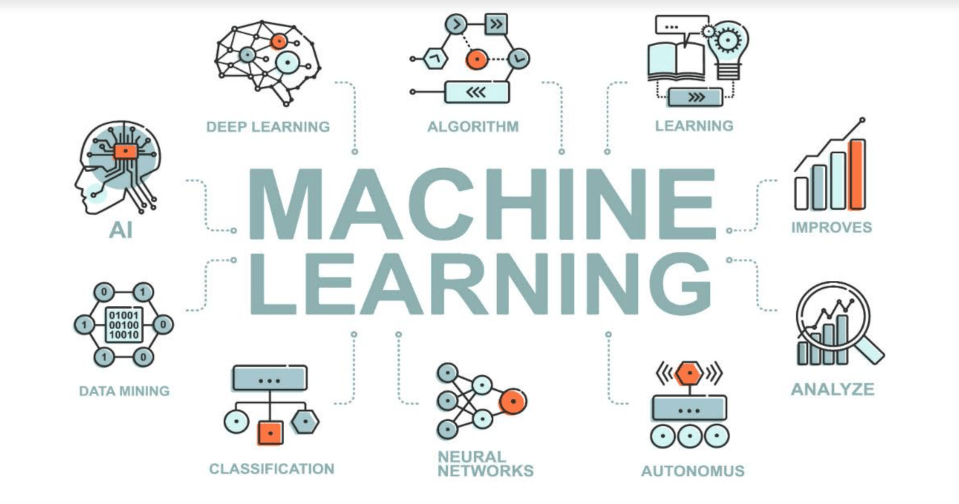
The intersection of technology and healthcare is a promising frontier that is rapidly shaping the future of medicine. Machine learning (ML) is at the forefront of this digital revolution. By using vast datasets and sophisticated algorithms, ML applications are transforming healthcare delivery and personalization, leading to more effective care. Chatbot Solutions stands out as a prime example of how ML is reshaping patient care.
Here, we outline the top 10 reasons why the implementation of Machine Learning in healthcare is not just beneficial—it’s essential for modern medical practices.
What is machine learning in healthcare?
Machine learning is a subset of artificial intelligence (AI) that involves training algorithms to learn from data and make predictions or decisions without explicit programming. In healthcare, this means using large amounts of clinical and patient data to train ML models that can assist in medical diagnosis, treatment recommendations, and drug development, among other applications. ML algorithms can also continuously learn and improve from new data, making them a powerful tool in healthcare.
Top 10 Reasons to Implement Machine Learning in Healthcare
1. Precision Medicine
ML algorithms can analyze large sets of patient data to identify patterns and predict outcomes, resulting in custom medical interventions. By considering individual variability in genes, environment, and lifestyle, precision medicine can deliver the right treatment to the right patient at the right time, leading to higher efficacy and fewer adverse effects.
2. Early Disease Detection
Machine learning excels at recognizing subtle changes within a patient’s data that might signify the onset of a disease. These predictive capabilities allow for earlier diagnoses, identifying conditions before a patient is even symptomatic, which can be instrumental in improving prognosis and life quality.
3. Personalized Treatment Protocols
ML models can predict the response to different treatments, enabling the creation of personalized therapy plans. Considering factors such as molecular analysis, the system can adapt treatments in real-time to provide the most effective and least invasive solutions for each patient.
4. Drug Discovery and Development
The drug discovery process is notoriously time-consuming and costly. Machine learning in healthcare enhances this by identifying drug candidates and improving the success rates of clinical trials. With reduced risk and timelines, new drugs can reach the market faster and at a lower cost.
5. Predictive Analytics for Preventive Care
Prevention is better than cure, and Machine Learning excels at predictive analytics, forecasting potential health risks before they manifest. By analyzing historical data and risk factors, ML algorithms can predict the likelihood of future health complications, enabling healthcare providers to intervene proactively.
Chatbot Solutions can deliver personalized health recommendations based on these predictions, helping individuals adopt preventive measures to reduce their risk of developing certain conditions.
6. Improved Administrative Processes
In addition to clinical applications, Machine Learning can organize administrative tasks, reducing the burden on healthcare staff and improving operational efficiency. ML algorithms can help automate appointment scheduling, prescription refills, and billing inquiries, freeing up valuable time for healthcare professionals to focus on patient care. ML-powered chatbots can handle routine administrative tasks with speed and accuracy, enhancing the overall patient experience and reducing waiting times.
7. Remote Patient Monitoring
Machine Learning enables remote patient monitoring, allowing healthcare providers to track patients’ health status outside traditional clinical settings. ML algorithms can collect data from wearable devices, smart sensors, and mobile applications, providing real-time insights into patients’ health metrics.
This remote monitoring capability is particularly beneficial for managing chronic conditions, post-operative care, and monitoring patients with complex medical needs. It helps in enhancing continuity of care and reducing hospital readmissions.
8. Population Health Management
Machine Learning enables population health management by analyzing large datasets to identify trends, risk factors, and disparities within specific patient populations. Machine Learning can engage with patients to collect valuable health data, conduct health assessments, and deliver targeted interventions to improve population health outcomes. ML algorithms can identify at-risk individuals, prioritize preventive interventions, and allocate resources more efficiently.
9. Enhanced Patient Experience
Machine learning in healthcare can empower patients with more personalized and accessible care. Chatbots and virtual health assistants can provide immediate support, personalized advice, and education, improving patient satisfaction and engagement while reducing the strain on healthcare staff.
10. Enhanced Diagnostic Accuracy
Machine Learning algorithms can analyze vast amounts of patient data, including medical records, imaging scans, and genetic information, to assist healthcare professionals in making accurate diagnoses. ML algorithms can efficiently process symptoms provided by patients, compare them with existing databases, and offer preliminary diagnoses or suggestions for further evaluation. This efficiency speeds up the diagnostic process and reduces the chances of human error.
Conclusion
Implementing machine learning in healthcare is changing the medical industry, with countless potential applications and benefits. From precision medicine to enhanced patient experience, ML is transforming the way we approach healthcare delivery and management.
With continued advancements and investment in this field, the future looks bright for both patients and healthcare professionals alike. So, healthcare providers need to incorporate ML into their practices to improve patient outcomes and healthcare industry as we know it.



